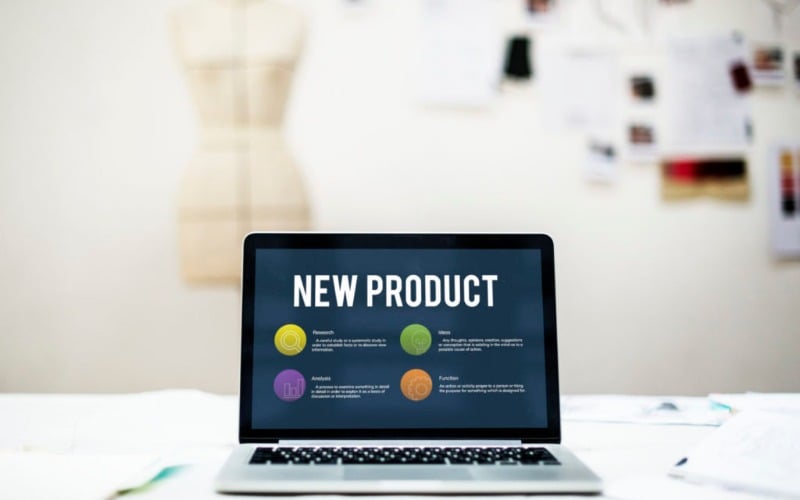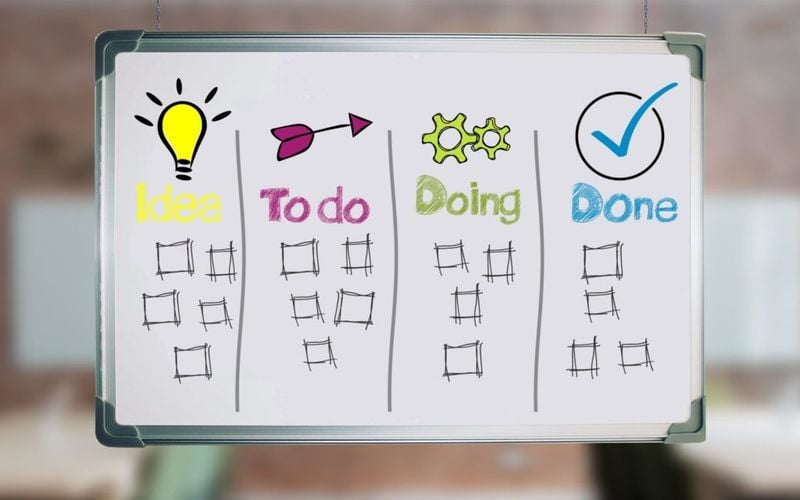The Product Management Job Hunt
In this article, I’ll go over my top tips for landing a product management job.
The path to a product management job is rarely straight. You don’t get a degree and start a job the next day. That rarely happens. It’s frustrating.

Everyone wants experienced product managers, but you can’t find a job to gain experience. So, how do you gain experience without having a product management job?
Education and Certifications
How important is a degree in product management? A college degree is typically a requirement, but it doesn’t need to be in product management.
Several years ago, I worked at a graduate school here in Silicon Valley. In the beginning, getting an MBA with a project management concentration was very popular. Once product management became popular, the school eventually brought in some experts and created a product management concentration. With all of that being said, I didn’t graduate with product management concentration and I was able to become a PM.
Most product managers arrive in their positions by:
- being subject matter experts (SMEs)
- demonstrating on-the-job skills
- having a business or similar degree
No product managers get to their positions the same way. That’s why it is so challenging to chart a path because every journey is different. You do need a basic understanding of what project management entails, how products are effectively managed within the project, and the tools needed to succeed in the position. But more importantly, you need emotional intelligence to create an environment where individuals become a collaborative team. Finally, you must be a life-long learner who can research and study independently.
What about certifications? Are they necessary? While they aren’t required, I would recommend getting a cert if you don’t have a formal education in product management or any experience.
Here are some popular product-focused certifications:
- AIPMM Certified Product Manager,
- Professional Scrum Master, or
- PMI Agile Certified Practitioner (PMI ACP)® Certification
Internships
For product management students
If you’re taking classes at an institution that offers a degree in product management, they should be able to help you find an internship. If your school doesn’t, then maybe it’s time to start a movement! Declining enrollment means colleges are fighting for each student and are open to providing additional services to attract students. Keep asking. Until internships become a standard part of a product management educational program, be prepared to create your own.
Most programs have independent or individual study courses. Use those classes to earn credits while interning. You will need to do the legwork, but find a professor who is willing to oversee an internship and has connections to the business community. Together you may find a company that is willing to let you intern. While you may not be the main person managing the product, use the time to gain insights into what the job entails. This will help you in building more experience and confidence for future opportunities.
Internalships
It’s possible that you can find a product management internalship. Internalships are internships for internal applicants. The first step is to look at existing product management jobs and PM’s in your company. Do they come from technical or business backgrounds? If you have a business degree and all product managers have technical degrees, be prepared for a difficult transition. You may be better off to look for a position at a company where product managers have a business or non-technical background. I’m not saying you can’t land a product management job without a technical education; I’m just suggesting that the cultural mindset may be against you.
Once you find the right company, you need to find a mentor. Compatible product managers who are willing to share their knowledge can be difficult to find. Most project managers will consider a mentorship role if you are willing to help them with their current projects. Some typical tasks that you can offer to do are:
- Following up on tasks
- Organizing meetings
- Work on mockups or prototypes
- Creating slideshow presentations
- Review analytics
- Conduct market assessments
- Provide fresh product ideas
Remember to listen. A mentor will help put your knowledge into practice. You should be honing your skills as you learn what works and what doesn’t. If you’re going to have a successful mentor relationship, you need to find a mentor you trust. Otherwise, you are less likely to accept suggestions and develop a positive working relationship.
Volunteering
Every community has volunteer opportunities. Every volunteer organization has projects that need to be planned. Within these projects, discover if there are products that need to be improved or products that would be helpful for improving the business process. You need to find a volunteer opportunity that appeals to you, and that can use your management skills.
Create a Compelling Portfolio
Having a relevant and highly accessible portfolio can help you land your next PM job. While this portfolio strategy is highly effective, most people that I know don’t have a portfolio…they just have a resume. Your portfolio is a centralized repository of your skills and experiences. Some people use LinkedIn for this purpose, but I prefer to use an asset that I own. To help start the process, I recommend keeping a journal of your day-to-day experiences. You can then draw on it to generate ideas for your portfolio.
Time
Taking a career leap into product management takes time…a lot of time. It’s not just about having the education or training. It’s about demonstrating you have the skills to successfully manage a product. That includes working with engineers, executives, marketing staff, and other stakeholders to successfully manage and launch a product. This requires a high level of emotional intelligence to work with a host of different personalities.
Remember, when a company hires you as a product manager, it is placing a great deal of trust in your ability to manage a product through its entire lifecycle with maximum success. It’s putting a part of its future in your hands.
No matter how you start your journey, recognize that it will not happen overnight. If you look at the entire spectrum of product management, think about your current strengths, weaknesses, and opportunities for improvement. Some people might focus on enhancing their strengths. For myself, I wanted to be more a balanced product manager. So I did the opposite and focused on improving my weak spots.
Your Future as a Product Manager!
Congratulations! You’ve reached the end of this article. I hope that you’ve gained a lot and that you’ll have success in finding a PM job. While it can be a challenging and time-consuming endeavor, the journey is worth it!





